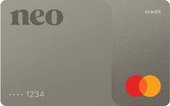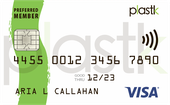There could be any number of reasons you are looking into credit cards for people with bad credit. One of the likeliest is that your personal credit score has been damaged by your past financial activity, such as late bill payments or even debt defaults or bankruptcy.
Another reason you may be looking into credit card resources for bad credit is that you are a first-time applicant for credit and do not have enough payment history to get approved for an unsecured credit card.
A further possible reason is that you have a low income, or a lower income than the lender is comfortable with for the credit limit you're requesting.
Continue reading below to learn what you can do if you find yourself dealing with any of these bad credit situations.
How to improve your credit score with a credit card
Credit cards for bad credit are usually designed to get you back on track by giving you an opportunity to improve your credit score. Using a credit card responsibly – by always paying at least the minimum payment on time, preferably repaying the whole balance each month and not maxing out your credit limit – will improve your score. That's because the card issuer will report your good financial behaviour to a credit bureau, who will record it on your file and adjust your score upwards. If you are approved for a credit card, paying your balance on time each month can be a great way to improve your rating.
Other ways to improve your credit score
Credit scores can also be increased by paying other bills on time. Some examples of these include your mortgage, any outstanding loans you may have, and your regular monthly bills for your cell phone or utilities.
Also, remember not apply for credit too often because the lender needs to run a credit check each time. These checks are called hard inquiries and can impact credit scores negatively.
Lastly, by paying off any debt you owe, such as a personal loan, you'll be improving your score.
Alternatives if you have bad credit
If you have bad credit, or no credit history to speak of, you need to get creative when it comes to finding alternatives to traditional, unsecured, credit card choices. Aside from just using a debit card or cash everywhere you can, there are some real options you can pursue while you're working on improving your credit score.
Secured credit cards
Secured credit cards, where you deposit cash with the card issuer to use as collateral, are the most common type of credit cards for people with bad credit scores. This type of credit card helps you rebuild your credit score by giving you an opportunity to work with a smaller credit limit to show you can manage the amount owing on the card. Your credit limit on a secured card is limited by the deposit amount you put down when you open the account. If you put a larger deposit down when you sign up you'll have a larger credit limit.
While the deposit is refundable, you're still likely to pay an annual fee, as well as other fees attached to the secured card. Also, the benefits attached to the secured card are usually less than you would get with an unsecured credit card. In the end, though, the purpose or a secured credit card is to increase your credit score.
Guaranteed approval credit cards
A guaranteed approval credit card is in many cases just another term for a secured credit card. Card issuers who offer guaranteed approval may sometimes be prepared to approve applications from people with a 'Fair' credit score between 600 and 650, but a score lower than this will very likely only guarantee a secured version of the card you are applying for.
Prepaid credit cards
Unlike secured credit cards, prepaid cards don't have an annual fee to worry about. You also don't need to deal with a credit check or interest rates. You can use a prepaid credit card anywhere you would use a traditional credit card, including online. All you need to do is buy the credit card at a store and top it up with the balance you want.
The limitation of this type of credit card is that you aren't going to increase your credit score as you use it. This sort of card is most useful if you're trying to improve your credit score using other means but still need credit card access in your life.
Buy Now Pay Later services
Another option is to take advantage of Buy Now Pay Later (BNPL) services. Simply choose the BNPL service when you're checking out in-store or online, and create an account through the BNPL provider. Once your account is created you complete your purchase and take your item home or have it delivered. The money you borrowed is interest free as long as you make the repayments on time, usually in four bi-weekly instalments.
With BNPL there is no annual fee to worry about, and usually no hard credit check. There can be late payment fees, however, and possibly account-keeping fees if you don't pay back the amount owing in time. Using a BNPL service doesn't negatively or positively impact your credit score as long as you make those payments when they're due, and not later.





